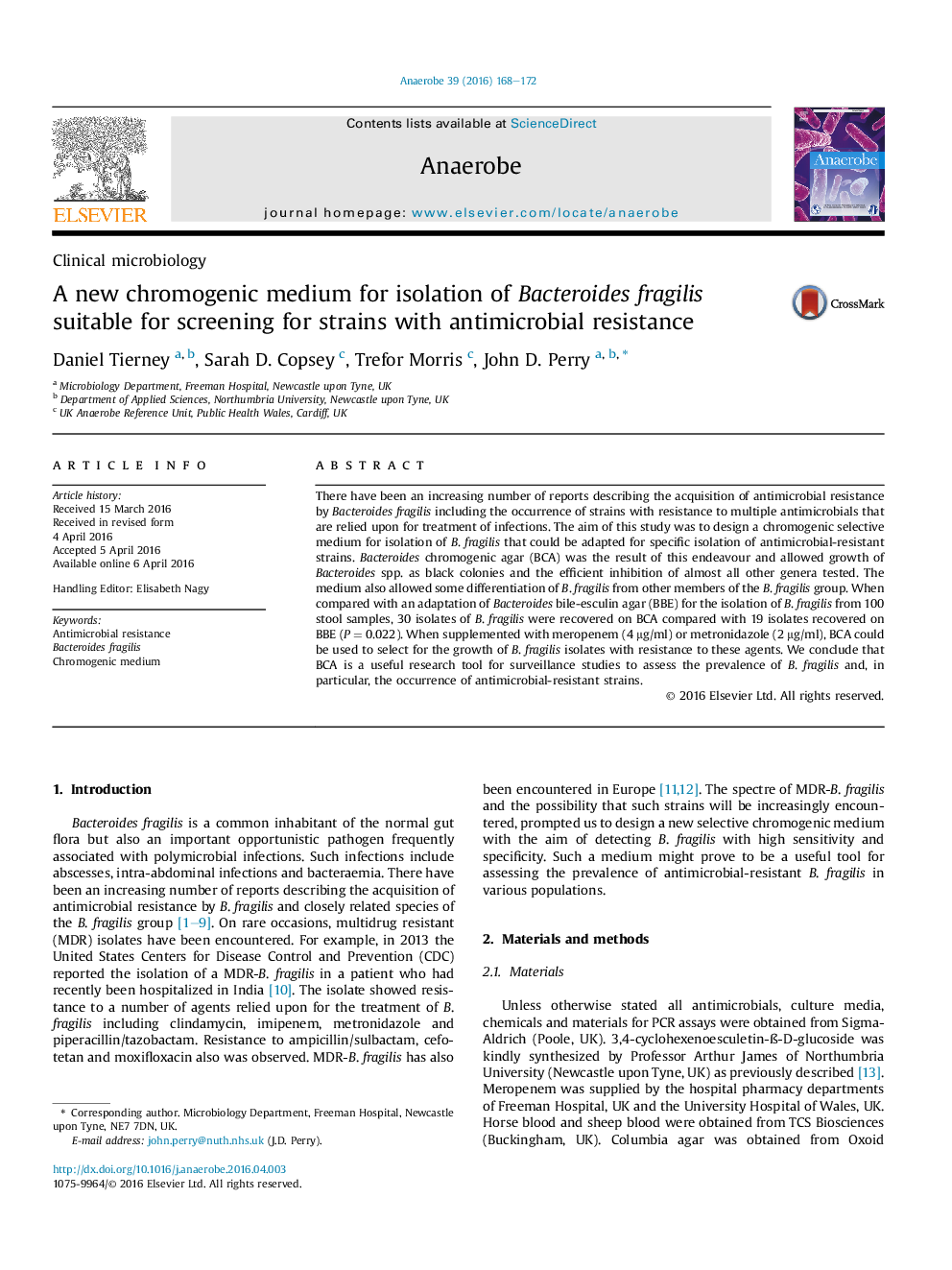| Article ID | Journal | Published Year | Pages | File Type |
|---|---|---|---|---|
| 6128609 | Anaerobe | 2016 | 5 Pages |
Abstract
There have been an increasing number of reports describing the acquisition of antimicrobial resistance by Bacteroides fragilis including the occurrence of strains with resistance to multiple antimicrobials that are relied upon for treatment of infections. The aim of this study was to design a chromogenic selective medium for isolation of B. fragilis that could be adapted for specific isolation of antimicrobial-resistant strains. Bacteroides chromogenic agar (BCA) was the result of this endeavour and allowed growth of Bacteroides spp. as black colonies and the efficient inhibition of almost all other genera tested. The medium also allowed some differentiation of B. fragilis from other members of the B. fragilis group. When compared with an adaptation of Bacteroides bile-esculin agar (BBE) for the isolation of B. fragilis from 100 stool samples, 30 isolates of B. fragilis were recovered on BCA compared with 19 isolates recovered on BBE (P = 0.022). When supplemented with meropenem (4 μg/ml) or metronidazole (2 μg/ml), BCA could be used to select for the growth of B. fragilis isolates with resistance to these agents. We conclude that BCA is a useful research tool for surveillance studies to assess the prevalence of B. fragilis and, in particular, the occurrence of antimicrobial-resistant strains.
Related Topics
Life Sciences
Immunology and Microbiology
Microbiology
Authors
Daniel Tierney, Sarah D. Copsey, Trefor Morris, John D. Perry,
